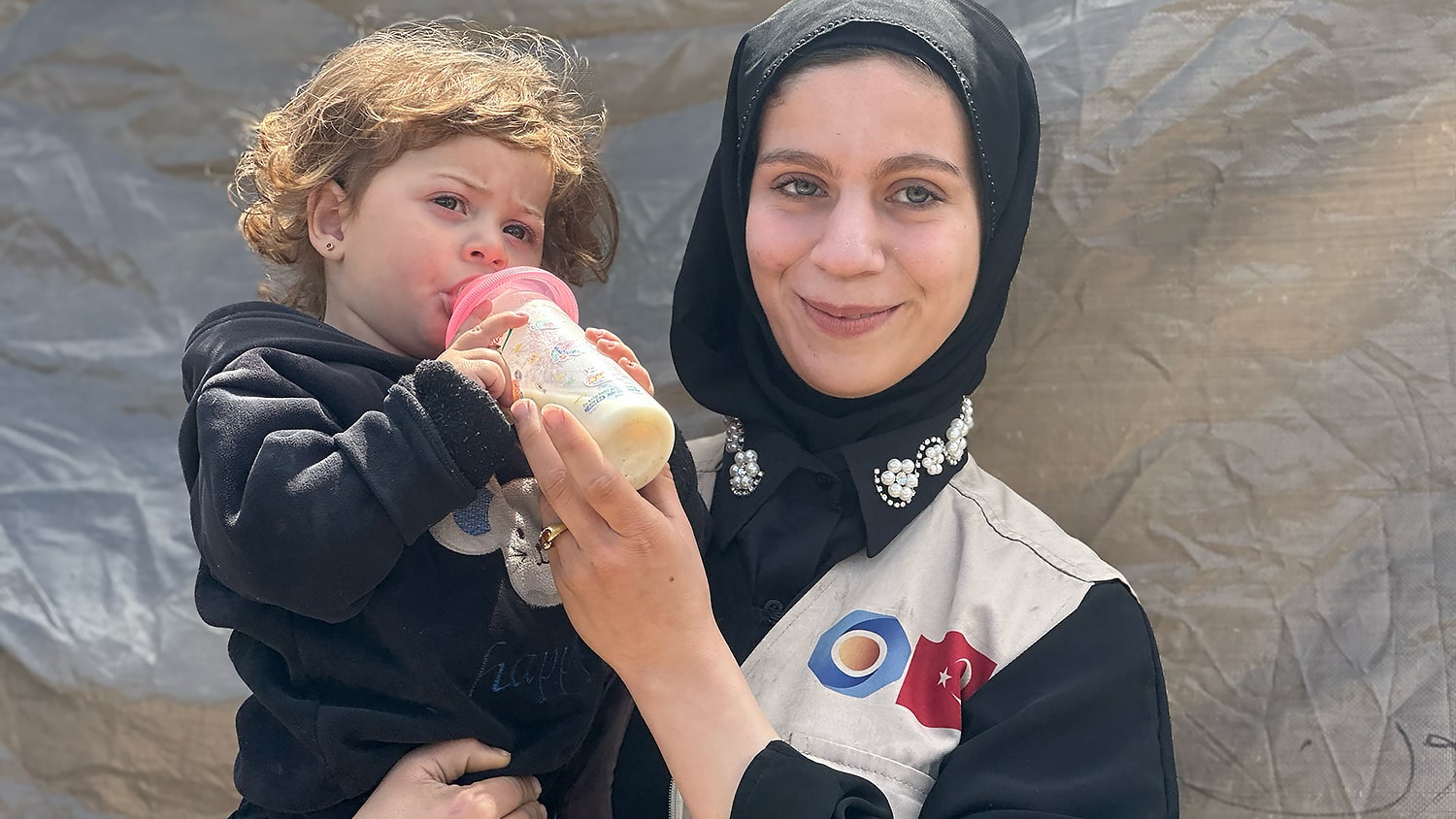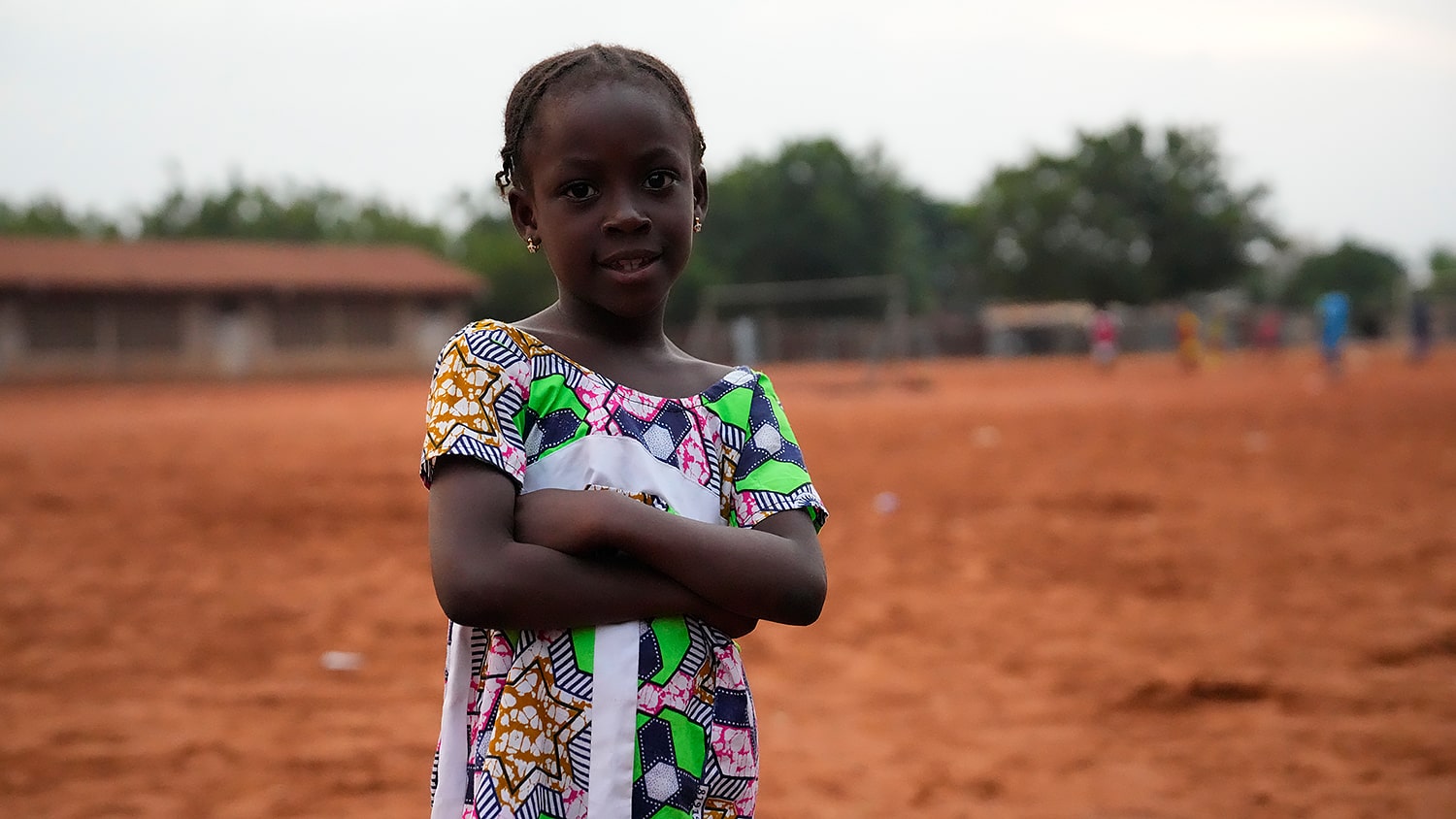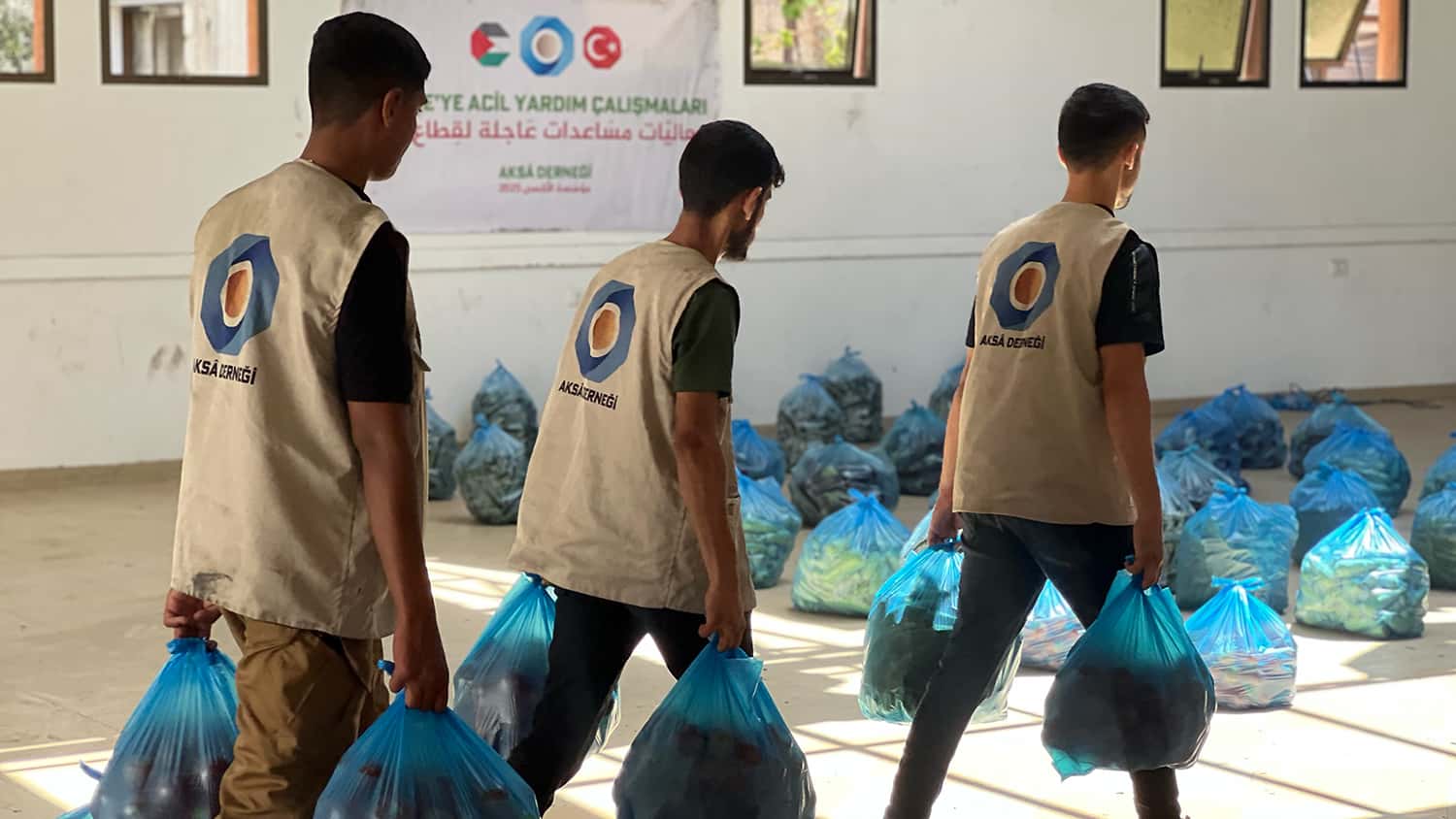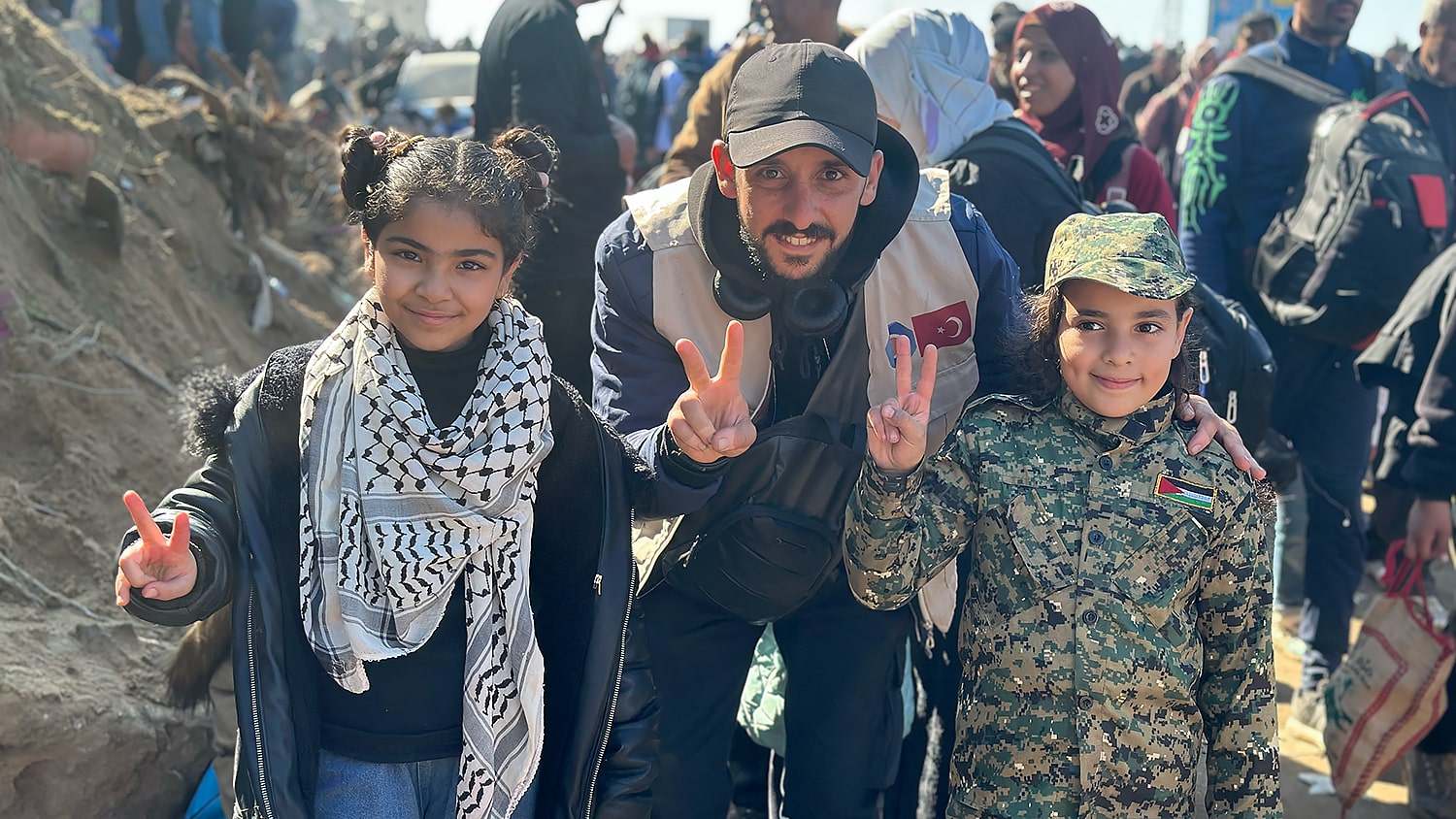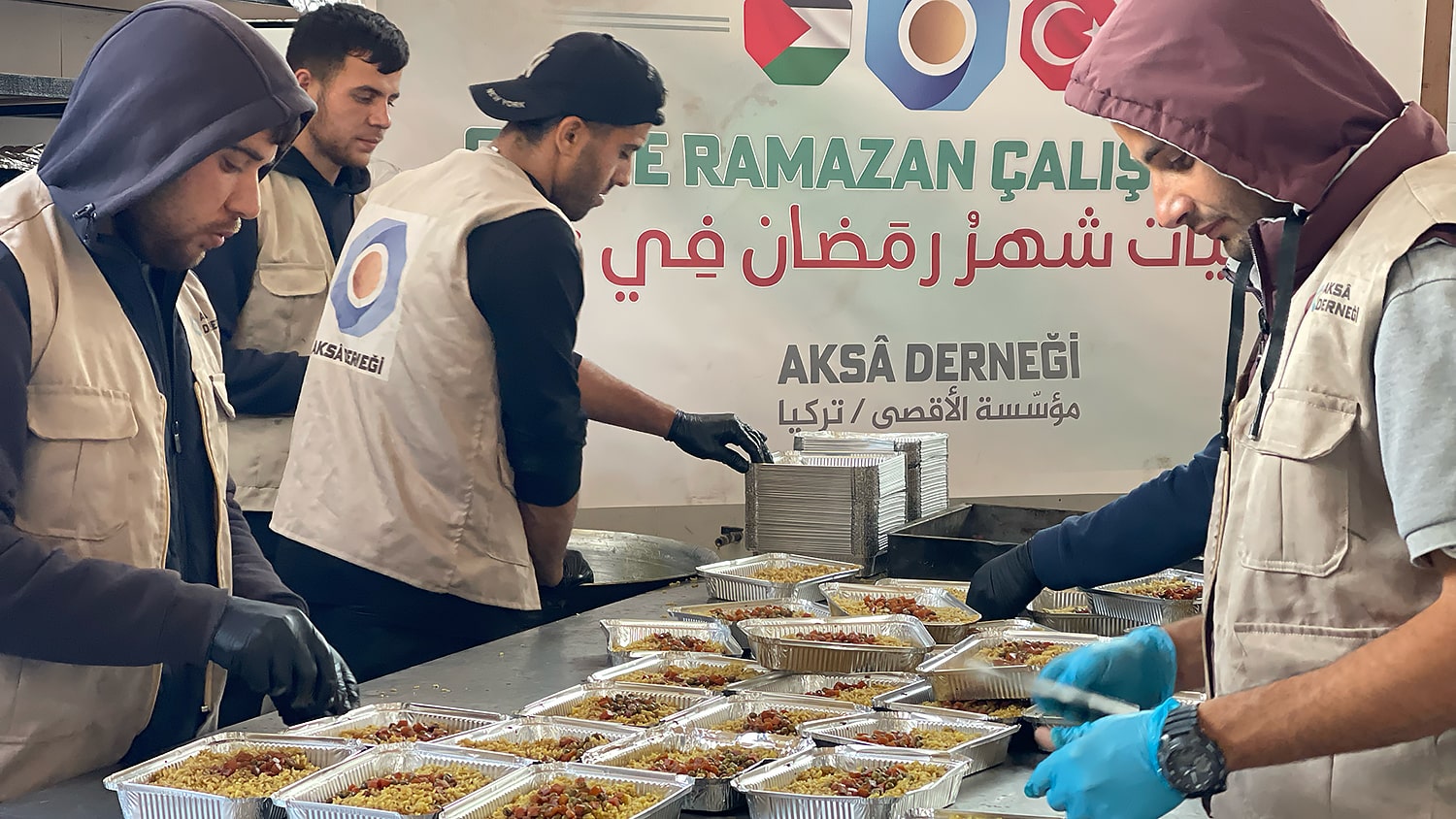Amid the harsh humanitarian conditions faced by displaced families in the Gaza Strip, the urgent need to provide milk for children has become increasingly critical, as many mothers are no longer able to secure this essential item due to the blockade, resource shortages, and soaring prices. Recognizing the vital role milk plays in a child’s growth and health, Aqsa Association launched a unique humanitarian project to supply milk to displaced children—an immediate response to the widespread hunger and malnutrition in shelters.
The project targets children from infancy to preschool age, distributing fortified milk packages rich in essential nutrients needed for healthy development. Aqsa’s field teams deliver the milk regularly to families in need, ensuring proper storage and handling to maintain quality and safety—especially in environments lacking basic care infrastructure.

This initiative is part of a broader plan focused on the most vulnerable groups, particularly children identified in the field as suffering from general weakness or malnutrition. The distribution is accompanied by awareness sessions for mothers on how to safely use the milk and integrate it into their children’s daily nutrition—enhancing both the short- and medium-term impact of the project.

The milk provided is more than a nutritional item; it is a gesture of warmth and compassion in a time of deep deprivation. For many mothers concerned for their children’s wellbeing, this project has brought hope and reassurance. It has been widely welcomed by families and has had a tangible effect on improving both the nutritional and emotional state of displaced children.

Through the Milk Project, Aqsa Association affirms that responding to children’s needs is not optional—it is an urgent humanitarian duty. Every carton delivered to a hungry child is a triumph of dignity and a message that generosity endures even in the harshest conditions. The association is committed to continuing and expanding this project with the support of generous donors, believing that nourishing a child is an investment in a healthier, more just, and more humane future.

